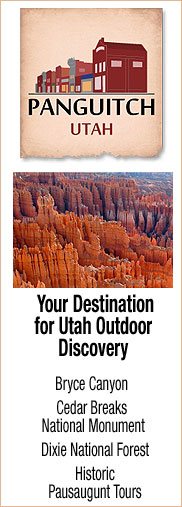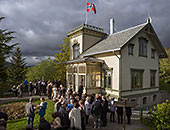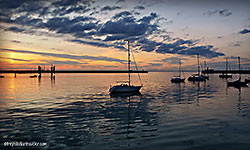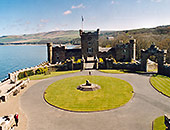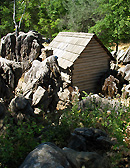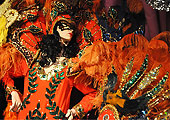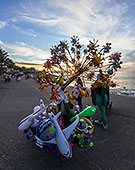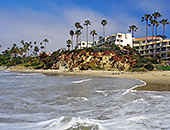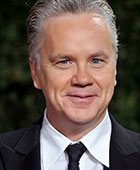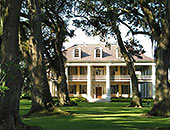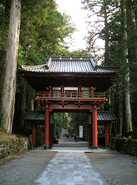 |

|
|
 |
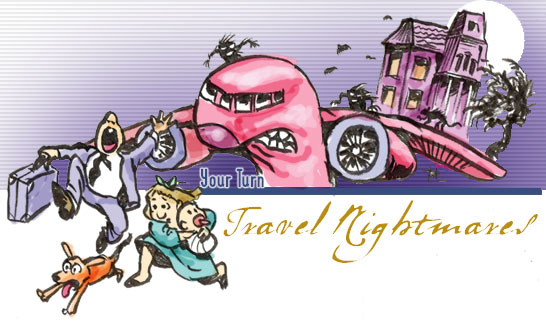
|
Turkish Trots
By Eric Anderson
The 1958 Plymouth wheezed its way up the cobbled night time streets of Istanbul as our guide told us about his city. He was a tall, suave, old-world gentleman who spoke almost perfect English. With his blazer and flannels and cravat at the neck, he reminded me somewhat of Reginald Gardiner, the movie actor still caught sometimes on late night television portraying the perfect butler or the debonair man about town. In contrast, the driver, a short little fellow hunched up over the wheel with only the top of his head showing, seemed more like Peter Lorre. Not speaking any English he contributed nothing to the conversation. Our guide, in the front seat, leaning awkwardly against the dash to face us in the rear for his running commentary, would every so often break off from his English to make a comment to the driver in Turkish, usually when Peter Lorre missed a gear change-and that was often. We drove on towards the Topkapi Palace. After our tiring flight from Izmir, I should have contented myself with the ride to our airport hotel, especially since Margaret, my late wife, had barely recovered from our bout of turista but the guide's offer to show us the city by night was too enticing for an obsessional photographer who had both a tripod and unused film in his bag. "I'm not sure if the Palace is floodlit," said Reginald Gardiner, "I've not been this way at night for some months, but we'll be there soon." As if he'd understood, the driver suddenly stood on the brakes hard and hanging an awkward right tore into a one-way street-the wrong way. We flew up the cobbles, gears crunching, springs groaning and tires squealing protest. In the back, we looked dubiously at each other but Reginald reassured us with the cryptic remark, "True, yes, one way, but at night it doesn't matter." He continued to chat amiably as if to practice his English while I peered out into the night. Clearly it had been a mistake to ask for this. I didn't need photographs. I'd shot the Palace by day on a previous visit. This was crazy. The city was in pitch darkness as was the Palace now ahead of us. Not even the sentry box was illuminated. Time to go home. Peter Lorre will turn in the car park, I thought, and we'll soon back to our hotel. As if to prove his independence, the driver floored the accelerator and we shot through the iron gates like buddies in the Cannonball Run: Lorre over the wheel, Margaret clutching her stomach, me tapping my tripod and Gardiner, still facing backwards as he urbanely practiced his English. He glanced nonchalantly over his left shoulder then abruptly stiffened, turned his petrified ashen face to us and shouted, "My God! He's going to shoot." Margaret and I snapped our gaze to the right. A sentry had jerked a machine gun up to his shoulder and was leaning forward to fire. "My God. Stop!" shouted our guide-in English. Peter Lorre drove on. "God. Stop!" shouted the guide striking the driver across his shoulders. He suddenly understood, stood on the brakes and the car skidded to a stop. We were twenty feet beyond the sentry but even at that distance and in the dark I could see his hands were trembling on the weapon. He crouched forward more and swung the gun up and down the length of our car. The soldier shouted at our driver and gestured to him to turn around. Instead of reversing right there, Peter Lorre, unbelievably, started to drive farther into the palace grounds to find a convenient turning point. Our guide uttered an oath and struck the driver again, this time on the head. Finally our Plymouth reversed and returned slowly to the sentry. The next few minutes remain a blur of groveling explanations and babbling apologies from a now-perspiring Reginald Gardiner punctuated by stern motions with the gun through our now-open windows, my wife who was sitting on the right side at the back, and still clutching her stomach, ducking every time the barrel came her way. Finally the sentry kicked the vehicle. He snarled something at our completely overwhelmed guide and gestured curtly that we could leave. We drove slowly and cautiously away and didn't stop until we reached a lighted cafe area. The flickering blue light of the cafe's neon sign illuminated the strained face of our Reginald Gardiner, no longer debonair. He plucked the scarlet handkerchief from his blazer breast pocket and wiped his sweating face. "I, I was going to, to take you back to your hotel," he stammered, "but I'm going to get an omnibus here that will take me, take me past my, my home. The driver will take you to, to your hotel. It has indeed, indeed been a, a pleasure meeting you. Good night." He bowed and immediately disappeared. We drove back in silence still shaking. "At the airport he originally intended just to take us to the hotel, didn't he? Right?" Margaret hissed at me. I nodded weakly. "And you, damn you, had the priceless idea of driving around Istanbul in the dark at a time when the country is under martial law? And when you knew I was desperate for a toilet. Right?" I shrugged foolishly. "And I was on the side that the bullets would have come from?" she continued. I gave her a silly grin. "You know what I was thinking when we thought he was going to fire?" my wife of 25 years said, punching my shoulder. I rubbed my shoulder and shook my head. "I was thinking that I'd get the bullets but you'd survive," she said. "And our kids would fix you, Buster. They'd give you Hell for the rest of your life." She leaned back in her seat and started to laugh hysterically. "You know," she said, "It would
almost have been worth it." |
|
| ||||
|
| ||||
|
| ||||
|
| ||||
|
| ||||


